Tulaca Manco, the aging Inca envoy to Europe, wishes to urge peace among civilized nations. The Inca have seen strong economic growth come with their contact with Europe, and wish to see it further grow. There is no need for violence or threats of violence. It will be most disruptive to all involved. What is there to gain from growing armies and heated words? The Inca are baffled by such developments in a part of the world so vastly superior to all others. Why should you fight amongst yourselves when you are not even bordered by savages, primitives, and barbarians, as the Inca have been for countless centuries? Why waste so much of your production for building axes and spears when you could use it instead to build to yet greater heights? You are leaders for all men on this world. Your actions are watched by the entire world. What darkness will war among you sow across the rest of the lands?
Announcement
Collapse
No announcement yet.
Destiny of Empires [Diplo Game] [Story Thread 5 - February 2011]
Collapse
This topic is closed.
X
X
-
Succession Crisis, Popular Uprising and the Magna Carta
The days after the death of King Richard were some of the most turbulent the nation had ever seen. Richard had no children, and the throne was contested by several claimants. John, brother of the King and Arthur, nephew of the King, were the most prominent. Arthur held sway in Brittany and had the support of the French queen, in addition to support of the Church and much of the people. John was well entrenched with the royal court and bureaucracy in London. The various lands of England picked sides. Scotland and Iceland sided with John, Ireland with Arthur. England was split.
The succession crisis turned violent. John and Arthur both raised armies from their supporters and battles raged across the land. Often mere skirmishes, there were occasionally large battles that claimed many lives. With near anarchy in the motherland, the colonies were left to fend for themselves. Viceroy Cornwallis maintained his rule over the Americans and continued his mission to civilize the savages. Governors William Bradford and Walter Raleigh continued to rule their respective colonies in South America. They organized the best they could to defend their people against native raids and the ever more menacing Inca. With no royal authority back in England the colonies relied on their own hardy independence to weather the storm.
John and Arthur both raised armies from their supporters and battles raged across the land. Often mere skirmishes, there were occasionally large battles that claimed many lives. With near anarchy in the motherland, the colonies were left to fend for themselves. Viceroy Cornwallis maintained his rule over the Americans and continued his mission to civilize the savages. Governors William Bradford and Walter Raleigh continued to rule their respective colonies in South America. They organized the best they could to defend their people against native raids and the ever more menacing Inca. With no royal authority back in England the colonies relied on their own hardy independence to weather the storm.
The people of the British Isles were not so fortunate. The economy was disrupted, trade was disrupted, the land was scarred by war and division. Arthur, who maintained support among the common people, sought to sow disorder among the heartland of John's territory by supporting brigands. One notable outlaw, Robin the Hood, became a notorious problem for the Sheriff of Nottingham. He and his forces claimed to steal from the rich and give to the poor. Mere campaign rhetoric meant to bolster support for Arthur's claim to the throne, the brigands became proficient in quick hit and run tactics against John's forces. They learned much from the tactics of the natives in the New World. Militarily they were a mere nuisance in the larger context of the war, but they were a public relations coup for Arthur who sought to undermine John's popularity with the people. Robin and his band succeeded in painting John as a vain and cruel tyrant. His support quickly began to wane.
John sought to end the succession crisis once and for all by hiring an assassin to dispatch Arthur. His assassin was successful, and Arthur disappeared, never to be heard from again. Yet to John's surprise, the disappearance of Arthur made little difference to the barons who had supported him. Thanks in part to the tales coming out of Sherwood Forest the succession crisis had become a full blown popular uprising. The barons became emboldened in their challenge to John. They gained the support of King Alexander II of Scotland, and together marched an army on London itself. The city, supporting their cause, opened the city gates to let them in. There, the barons swore fealty to King John on the condition that he agree to a Magna Carta limiting his power. With their armies in the city, he had no choice but to agree to their demands. Slavery was abolished throughout the British Isles and the Magna Carta replaced the barbaric legal code of King John with a more formal system of vassalage to determine the relationships between the crown and the lords.
difference to the barons who had supported him. Thanks in part to the tales coming out of Sherwood Forest the succession crisis had become a full blown popular uprising. The barons became emboldened in their challenge to John. They gained the support of King Alexander II of Scotland, and together marched an army on London itself. The city, supporting their cause, opened the city gates to let them in. There, the barons swore fealty to King John on the condition that he agree to a Magna Carta limiting his power. With their armies in the city, he had no choice but to agree to their demands. Slavery was abolished throughout the British Isles and the Magna Carta replaced the barbaric legal code of King John with a more formal system of vassalage to determine the relationships between the crown and the lords.
King John's rule was short and remarkable only for the signing of the Magna Carta and the conflicts with the barons. He was soon succeeded by his young son, King Henry III who would enjoy a very long and prosperous rule over the English Empire.
Comment
-
2 Tribes of the Inca
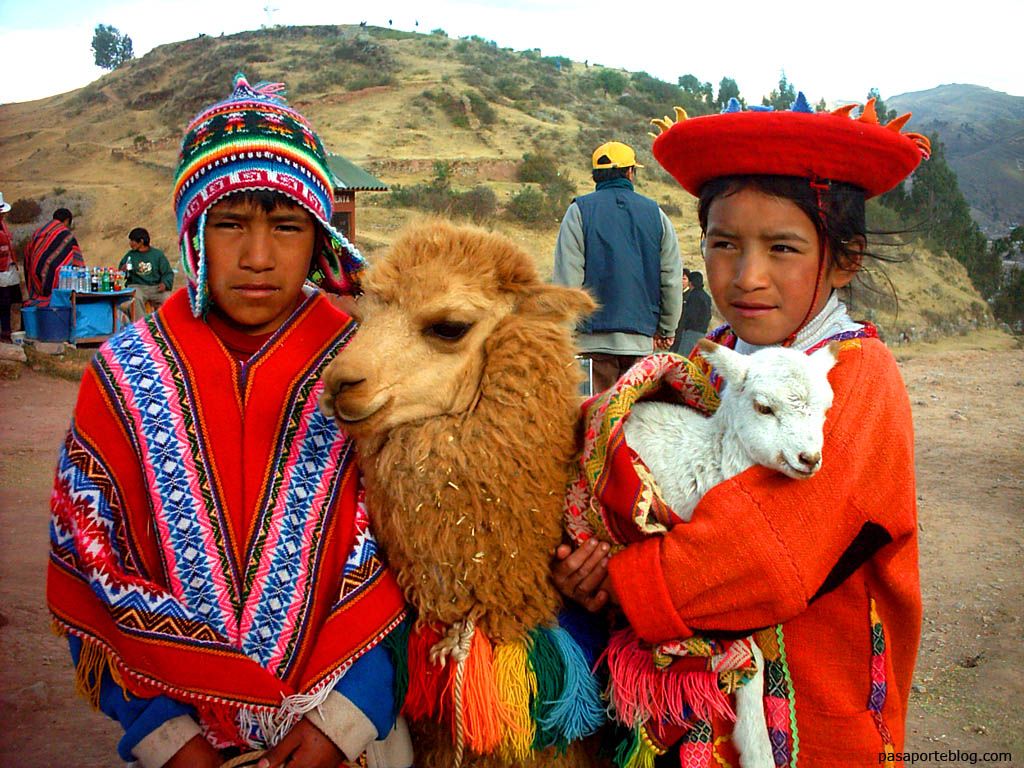
THE MANCHA
The Mancha tribe is one of the oldest in the Empire. Its beginnings were in the hilllands of Hazco Capaco, the original gold miners and refiners of the ancient Kingdom of Inca. Their struggles for power with the Capaca could fill many volumes, and in the end the struggle was decided by giving the Mancha a land of their own. Historians still argue over the role of the Great Purge of antiquity that anticipated these events and whether they were Capaca- or Mancha-led. In either case, some great genocidal catastrophe apparently put an end to the tribal infighting of the ancient era. Since then, the major families and organizations have been working together in peace, albeit with strong lines between their affairs even into this present. The Mancha now control the metals industries, including copper, bronze, gold, silver, and iron. Their importance in the latter two subindustries are less, as they have had to compromise with the local Guacan and Matalin respectively. Still, the Guacan and Matalin hold only small stakes in the actual extraction and refinement of metals, and instead have been given rights to control their transportation and local distribution, a fair power-sharing compromise that has led to relative peace. The Mancha tend towards compromise when necessary to avoid conflict, although they can be ruthless at times. The dress of the Mancha tends to be colorful and made of llama wool, as they traditionally have been hill and mountain people. The coastal Mancha of the south retain the colors of the central highlands, yet make their clothing lighter. The Mancha are the masons of the empire as well, and their homes are usually made of mortar, stone, and brick.
THE CAPACA
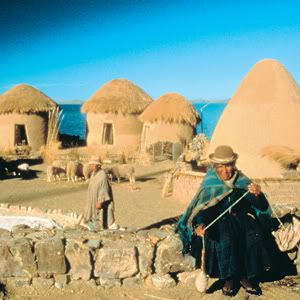 The Capaca tend to be less compromising yet just as disinterested in conflict. Seemingly a paradox, they are able to pull this off due to their clear upper hand in the affairs they choose to take part in. They are less expansionist in their influence, choosing to stick to what they know, each family and individual man fairly insular and uninterested in far-off affairs in places with clearly established lines. In the past, the Capaca led major expeditions and settlement operations, but since such efforts have fallen out of favor, perhaps due to the limited opportunities now available. Generally, other tribes don't mess with Capaca territory, and the Capaca do likewise. The Capaca are very conservative in general, and aggressive when faced with the liberalizing or otherwise conflicting interests of the "New Lands" (those presently east of the Chupat). Their dress tends to be less pronounced for commoners and peasants, and they usually wear the distinctive hats depicted here. The elites, however, are the most extravagantly (and ostentatiously) dressed men of the empire, adorning themselves in gold, feathers, and vibrant colors. The typical Capaca are coastal and river plains dwellers, and their abodes are generally adobe and clay based.
The Capaca tend to be less compromising yet just as disinterested in conflict. Seemingly a paradox, they are able to pull this off due to their clear upper hand in the affairs they choose to take part in. They are less expansionist in their influence, choosing to stick to what they know, each family and individual man fairly insular and uninterested in far-off affairs in places with clearly established lines. In the past, the Capaca led major expeditions and settlement operations, but since such efforts have fallen out of favor, perhaps due to the limited opportunities now available. Generally, other tribes don't mess with Capaca territory, and the Capaca do likewise. The Capaca are very conservative in general, and aggressive when faced with the liberalizing or otherwise conflicting interests of the "New Lands" (those presently east of the Chupat). Their dress tends to be less pronounced for commoners and peasants, and they usually wear the distinctive hats depicted here. The elites, however, are the most extravagantly (and ostentatiously) dressed men of the empire, adorning themselves in gold, feathers, and vibrant colors. The typical Capaca are coastal and river plains dwellers, and their abodes are generally adobe and clay based.
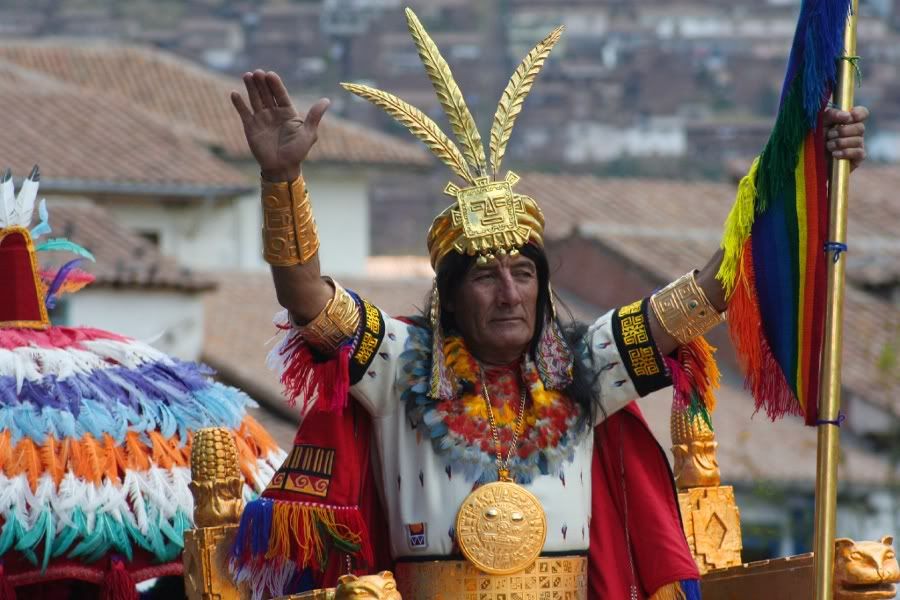
Comment
-
The Other 2 Tribes of the Inca
THE TALCHA
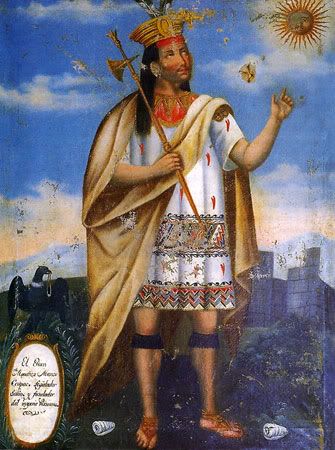 The Talcha are a more dynamic people than the Capaca. Although the Immigrant armies in the early classical times marched on and nearly sacked Capaco, the other tribes have not seen a quarter of the bloodshed that the Talcha have. Having for almost a generation lost their central city, and having had other cities razed and destroyed near the end of the Immigrant Wars, and further serving as the Empire's gateway to the rest of the Western landmass, not to mention sharing borders with the cold, uncooperative, and perpetually mysterious Aztec (whom they have a high amount of distrust and animosity for, a sort of racism, based on the unfounded feeling among many that the Aztec were behind that classical invasion), the Talcha have become preoccupied with security and have a severely "Realistic" world view. That they are also the center for Inca modern weapon production due to their iron mines makes their militarism almost unavoidable. They do not tolerate much straying from doctrine in matters of politics, but they do operate on a fairly meritocratic policy when it comes to their affairs, worried that the corruption and nepotism of their classical ancestors was the primary reason for the severe mistakes made in the Immigrant Wars that cost them so dearly. Culturally, the Talcha are very similar to the Capaca. Commoners wear similar dress and live in similar homes, while the elites of the society tend to wear the distinctive, simple white-based tunics with red or black detailing.
The Talcha are a more dynamic people than the Capaca. Although the Immigrant armies in the early classical times marched on and nearly sacked Capaco, the other tribes have not seen a quarter of the bloodshed that the Talcha have. Having for almost a generation lost their central city, and having had other cities razed and destroyed near the end of the Immigrant Wars, and further serving as the Empire's gateway to the rest of the Western landmass, not to mention sharing borders with the cold, uncooperative, and perpetually mysterious Aztec (whom they have a high amount of distrust and animosity for, a sort of racism, based on the unfounded feeling among many that the Aztec were behind that classical invasion), the Talcha have become preoccupied with security and have a severely "Realistic" world view. That they are also the center for Inca modern weapon production due to their iron mines makes their militarism almost unavoidable. They do not tolerate much straying from doctrine in matters of politics, but they do operate on a fairly meritocratic policy when it comes to their affairs, worried that the corruption and nepotism of their classical ancestors was the primary reason for the severe mistakes made in the Immigrant Wars that cost them so dearly. Culturally, the Talcha are very similar to the Capaca. Commoners wear similar dress and live in similar homes, while the elites of the society tend to wear the distinctive, simple white-based tunics with red or black detailing.
THE GUACANA
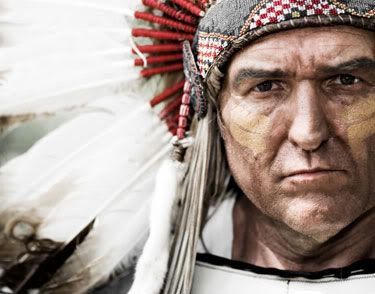 Also referred to as a number of large families-tribes, the Guacana are a fairly loose collection of lesser tribes and cultures that arose independently of the Inca during ancient times. They were integrated into Inca civilization long ago, when the Kingdom finally transformed itself into an empire and began conquering the "alien" Dark Territories. To speak in generalities about the Guacana is to engage in fantasy. What can be said in general is that they are more egalitarian, more commercially-focused, and more individualistic and dynamic than any other tribe in the Empire. Despite entering the Empire in the poorest of states (basic hunter-gatherers and junglemen), they have adapted well to organized life, and now are the center of the Empire's economic growth. Their fractious nature prevents them from holding true power in the central government or greater "body social", something other powers have used to further divide them (although distrust of "local foreign" influence remains high). In general, the Guacana keep to themselves, sending their taxes westward, and propagating their "scientific" breakthroughs throughout the lands. The Guacana are not, however, known for the compassion for other "junglemen" of the Tamazono, whom they have perpetually been at war with since antiquity. Typical dress varies highly, although use of feathers and limited covering is the norm. Dwellings are made of wood. The Guacana are a river people, living through the many branches of the Tamazono and similar rivers of the Dark Territories.
Also referred to as a number of large families-tribes, the Guacana are a fairly loose collection of lesser tribes and cultures that arose independently of the Inca during ancient times. They were integrated into Inca civilization long ago, when the Kingdom finally transformed itself into an empire and began conquering the "alien" Dark Territories. To speak in generalities about the Guacana is to engage in fantasy. What can be said in general is that they are more egalitarian, more commercially-focused, and more individualistic and dynamic than any other tribe in the Empire. Despite entering the Empire in the poorest of states (basic hunter-gatherers and junglemen), they have adapted well to organized life, and now are the center of the Empire's economic growth. Their fractious nature prevents them from holding true power in the central government or greater "body social", something other powers have used to further divide them (although distrust of "local foreign" influence remains high). In general, the Guacana keep to themselves, sending their taxes westward, and propagating their "scientific" breakthroughs throughout the lands. The Guacana are not, however, known for the compassion for other "junglemen" of the Tamazono, whom they have perpetually been at war with since antiquity. Typical dress varies highly, although use of feathers and limited covering is the norm. Dwellings are made of wood. The Guacana are a river people, living through the many branches of the Tamazono and similar rivers of the Dark Territories.
Comment
-
"Your royal higness and Madam, sorry for this interuption but the emmisary from Israel has sent an urgent message."
"Be quick with your gruntings then! We are in a great hurry as you know"
"Two great people have become renowned and are residing in Neandor City."
"YES< YES< I know that - Frank Johnson and some other religious prophet."
"Israel wishes to process papers for the prophet's emmigation to Israel for a great price!"
"What price?"
"No offer has been made but..."
"No offer? Listen, I know you mean well and have served me faithfully for many a grunt but you know I am not a religious man and look to the happiness and productivity of my people. These great people offer me this opportunity and this is how I intend to use them. I will wait until near the end of the current year [turn] before celebrating a great new golden age of Neandor triumphs. Unless there is an offer that is of greater value, this is destined."
"Yes King Snarg II"
-
King Snarg had failed to invent Economics before the Vikings but he was determined to develop very quickly the free market systems to increase trade with the Vikings and others. Although King Gozzo is predicted to oversee the rise of great merchants in his land before the Neandor.The question of whether modern humans and Neanderthals mated when they encountered each other 40,000 years ago is highly controversial.
Comment
-
 n the year of our Lord 1060, a monastery was built in the hills near the Russian town of Sochi. It was made by appointment of our most pious and enlighted Queen Catherine of Rus for the glory of our God.
n the year of our Lord 1060, a monastery was built in the hills near the Russian town of Sochi. It was made by appointment of our most pious and enlighted Queen Catherine of Rus for the glory of our God.
When the monastery was built, an angel came upon us from the skyes and blessed those infertile plain hills with an iron ore. All praise our God and our Queen!

Comment
-
The blackness faded to gray. First a solid wall of gray, and then merely mist and vapor. She walked slowly through the mist. Suddenly a man in hindu dressed charged at her, a knife in his hand. She triede to run quickly, but her feet felt like stone. She turned around. The hindu was gone. In his place, a man in fine clothes, and obviously a damnanglais, stood there, a sword in his hand. He raised it to strike her. She screamed and raised her hands over her head. The Englishman morphed into a firece, bearded Viking. He slowly raised his axe. She saw out of the corner of her eye another body. It was her father, in full armor. He smiled at her and then faced the Viking warrior.
The mist thickened. Then blackness.
Comment
-
News from India
The now legendary and venerable Siddharta has passed away and the nation is currently leaderless. Despite this setback, the Indians seem to continue to prosper. A succession struggle has begun though the closed subcontinent continues its policy of speaking little to outsiders on the regards of its own affairs. However, recently Vaybagadara has published a list of the great feats of Siddharta, including but not limited to:
-Repelling the Arab invasion
-Uniting the Indians
-Making friends with Arabia
-Adopting Islam
-Making friends with Neandor
-On the principles of Islam, adopting Pacifism
-The establishment of the Academy of Knowledge in Delhi
-Great leaps of knowledge
-Vast population growth
-Settling of new cities
-The cultivation of several great men of wisdom and science
The leaderless nation does not despair though, for the last act of Siddharta was to give the people a prophecy of hope:
"Through strength of faith and belief in the goodness of men the world will become without want, without hate, without war. The tenets of Islam teach that all peoples are the creators children, and therefore they must not bicker amongst themselves, lest the divine powers be angered. Not only does the divine abhor war, women, children and men must also reject it, for its only consequence is suffering to them. Therefore India must always seek solutions of peace and friendship with other lands, and with its own tribes, for though strife between cousins is sad, strife between brothers is a tragedy. If the Indians remain thus faithful to its founding principles that war is evil and peace is good, a great man will arise to lead the people in times of hardship and in times of greatness. In his footsteps other great men will follow and India will become a land of living legends. Thus have I, Siddharta, leader of India for generations spoken, and thus it will be. I have extended my life through the techniques of the ancients and it has been my folly, for other great men have come and passed while I have ruled from my chamber of meditation. They would have ruled India better than I, yet I was too proud to see this. Therefore, my people, be always wary of pride, for it brings blindness to the truth. Had I allowed my eternal rest to come earlier, India would now have a leader, yet my pride have kept others from rising to glory, and this shames me. Therefore I pass into the arms of the eternal creator now, leaving my nation without a guide, yet you need no guide for the tenets of faith and our traditions will guide you well on their own. Yet when doubts arise a leader will step up and continue to show Indians unto the road of peace and prosperity. I must now leave our world."
Then Siddharta the Venerable passed on to the next world, some say he merely arose from his meditative position and ascended to heaven, others say he became one with the air. Siddharta is no more, India goes on, and prays for the fulfillment of prophecy.
Comment
-
An Openly Published Letter to "the King"
I, the supreme Emperor of all Inca, Sapa Chitcopi Incacona, Sapa Chuco of the Talchota, who hails from Hazpac Talcho, friend of the Matalin, do hereby respond to the recently leaked demands of the English:
Dearest King, what need have I for a third now? What need have I for a second? And what need have I to create your great empire's growth with the sacrifice of my own? We, a weak power, now are to be your slaves, to colonize your lands that you unjustly claim for yourselves, that you try to sell off to the Inca after we have already basically given you so much land of our own! What should I make of this? What should the great Inca people make of this? They feel as I do.
You have given us a choice between llama dung and monkey scat, and asked us which we should prefer, while you hoard royal corn and potatoes to feast upon. You claim there are productive capabilities there, but there is no production without food, and there is no food in these places! The Inca have no need of production anyway. We have many productive lands yet to settle here at home. Our settlers stand poised to create a new powerhouse hazpac, the rival of any other, but they are held in perpetual limbo as we discuss territorial rights that you insist upon. The Inca have rights as well. These lands are closest to us, why do you dictate to us how to settle them?
You want four workboats? These are not workboats for the Inca to go to a bright future, but workboats for us to go to English-bonded slavery. We will sign away our freedom of travel with these pieces of wood, and in so doing allow for the revival of that most hideous ancient practice.
We reject your demands, your arrogance, and your slavery!
Comment
-
Dear King of the Englishmen,
Take to heart our concerns over your treacherous slavery. Do not be fooled by Inca weakness now, we will not always be so. We warn you now. Our iron is as strong and sharp as any others' even today. Perhaps you remember such strength from not so long ago, when the warriors of Tamazono slayed you in the hundreds as you tried to cross into our sacred lands? Do not make us remind you of such outcomes...
We write to you to discuss matters of this deal. You understand that, as Emperor, I am bound by the past. Here in Incacona, unlike as is in England, the dead can still enslave the living to their will. We respect our ancestors, and we respect the agreements they have made! But, as perhaps your spies have told you, we no longer are able to fulfill our end in so timely a manner as we spoke of in past times. The past may tell the future what to do, but the past does not always know what the future holds, and unexpected issues may arise. Such an issue has arisen for us, as it has already arisen for you. Fair is fair, dearest King, and we request delay as you have of us for so many decades.
We do not break our word, but we must make it as... malleable as the English word now. Should we apologize for doing to you what you have already for so long done to us? We shall not.
This deal is so broken.
Sincerely:
His royal majesty of the Old Coast and Dark Territories, conqueror of the Kassites, the reasonable, the [Inca word for one that does not shed blood at insurrection], the Emperor of Incacona and beyond,
Sapa Quipo Matalin
Sapa Chitcopi Incacona
Comment
-
A political account of the riots of Caczcoyna preceding the great expansion of Quipo's reign, their causes and consequences for domestic and international politics:
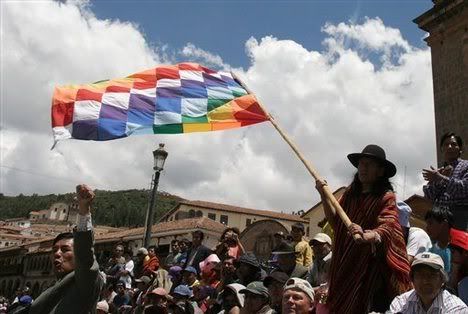 Furious, the people of Caczcoyna city have been protesting and rioting over the orders and demands of the central government, and of their regionate government's complicity in the affairs. Some background may be necessary to understand these events. Some time back, the central government had deemed it necessary to force the Tupaca family to create large settling parties the English were demanding at the time. Although the people of Caczcoyna, by now distinct from their Mancha ancestry, and loosely calling themselves Tupancha, were neutral towards the English, fulfilling this came at great cost, and in general they were less than happy to be taking orders from distant Capaco. The Capaco government, however, had little choice, as West Coast (by this time they had adopted European geographical terms) production centers were completely hostile towards sending their workers off to the English, and besides all were busy in working on the military buildup at the time. Hazpac Caczcoyna, however, offered much growth, and so was deemed a perfect solution.
Furious, the people of Caczcoyna city have been protesting and rioting over the orders and demands of the central government, and of their regionate government's complicity in the affairs. Some background may be necessary to understand these events. Some time back, the central government had deemed it necessary to force the Tupaca family to create large settling parties the English were demanding at the time. Although the people of Caczcoyna, by now distinct from their Mancha ancestry, and loosely calling themselves Tupancha, were neutral towards the English, fulfilling this came at great cost, and in general they were less than happy to be taking orders from distant Capaco. The Capaco government, however, had little choice, as West Coast (by this time they had adopted European geographical terms) production centers were completely hostile towards sending their workers off to the English, and besides all were busy in working on the military buildup at the time. Hazpac Caczcoyna, however, offered much growth, and so was deemed a perfect solution.
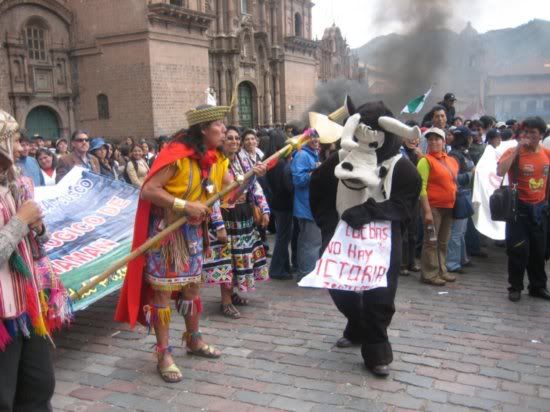 Once completed, the settling party left to be given to the English, but diplomatic arguments and discussions prevented their immediate departure from Inca lands. Lost in a limbo between the two cities, the people took to the fertile yet still uninhabited hills of the middle eastern Chupat Mountains, and awaited the declaration of their fate by the "local foreign" Emperor in Capaco. This increasingly frustrated the Tupancha, and became a very visible and ongoing issue in local politics. In addition, the central government had also had to move its local garrison to conquer the barbarian city-state of the Kassites to the southwest, heavily dissipating what leverage the central government had on local affairs.
Once completed, the settling party left to be given to the English, but diplomatic arguments and discussions prevented their immediate departure from Inca lands. Lost in a limbo between the two cities, the people took to the fertile yet still uninhabited hills of the middle eastern Chupat Mountains, and awaited the declaration of their fate by the "local foreign" Emperor in Capaco. This increasingly frustrated the Tupancha, and became a very visible and ongoing issue in local politics. In addition, the central government had also had to move its local garrison to conquer the barbarian city-state of the Kassites to the southwest, heavily dissipating what leverage the central government had on local affairs.
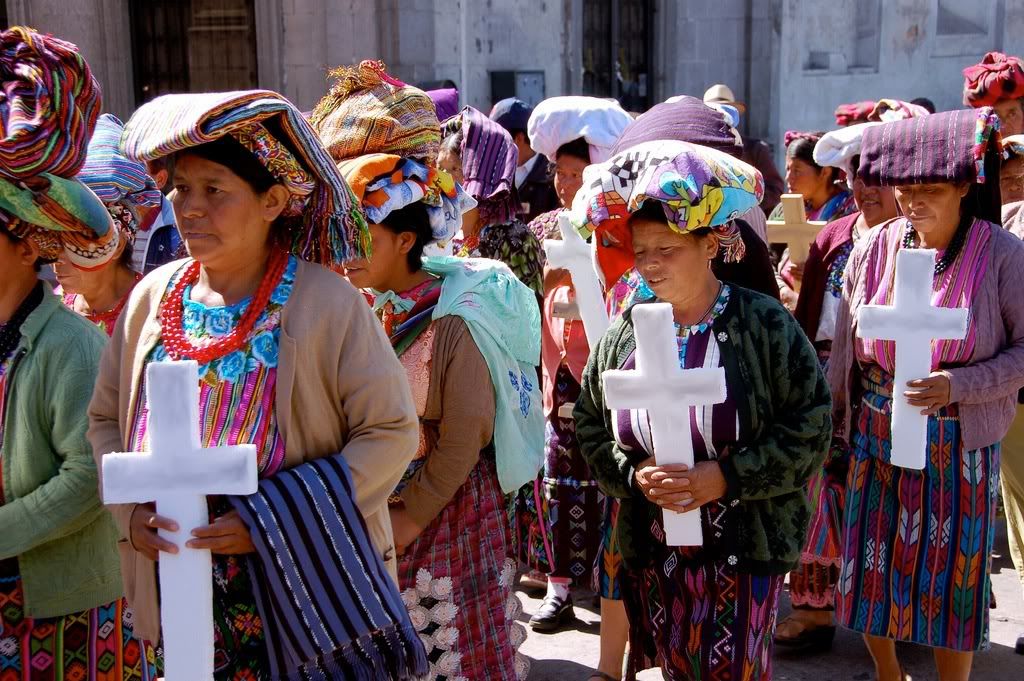 Once the settlers had left, the hazpac returned to its own explosive growth, and this influx of youth and vitality (and a good deal of hormones) mixed with the prevailing issues to produce a highly unstable alchemical mixture. Shortly, the city was ablaze, the governing buildings lit up as riots and protests racked the metropolis. Long forced into manual labor and food production by Capaco, the intellectuals that were once the backbone of Tupancha society came to the fore and led a successful revolt, overthrowing the local government and forcing the Tupaca family to make a strong about-face to save their influential role in local (and increasingly, regional) affairs. The revolt was fortunately fairly bloodless, the government having few troops to muster to combat it and little resolve, and resolution was swift.
Once the settlers had left, the hazpac returned to its own explosive growth, and this influx of youth and vitality (and a good deal of hormones) mixed with the prevailing issues to produce a highly unstable alchemical mixture. Shortly, the city was ablaze, the governing buildings lit up as riots and protests racked the metropolis. Long forced into manual labor and food production by Capaco, the intellectuals that were once the backbone of Tupancha society came to the fore and led a successful revolt, overthrowing the local government and forcing the Tupaca family to make a strong about-face to save their influential role in local (and increasingly, regional) affairs. The revolt was fortunately fairly bloodless, the government having few troops to muster to combat it and little resolve, and resolution was swift.
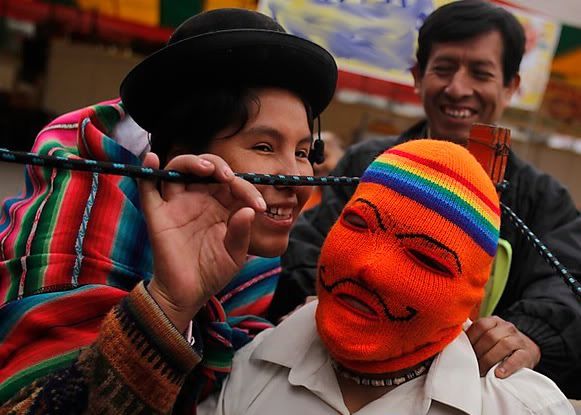 The results were an increasing amount of sovereignty for the hazpac, and the "wild south" in general, now yet further distanced from the central government, which still at this time was too weak to force any real control. Although the government would soon come to control the Kassites, they had almost fully lost both Hazpac Caczcoyna and Hazpac Cuzaca in the process. To add further frustration, the "lost settlers" were returned to the control of the Tupaca family, which immediately decided to settle them to the west, in the mountains, a move that would heavily press into traditional Mancha territory, and mark a turning point in the Mancha/Capaca-Tupaca/Tupancha saga.
The results were an increasing amount of sovereignty for the hazpac, and the "wild south" in general, now yet further distanced from the central government, which still at this time was too weak to force any real control. Although the government would soon come to control the Kassites, they had almost fully lost both Hazpac Caczcoyna and Hazpac Cuzaca in the process. To add further frustration, the "lost settlers" were returned to the control of the Tupaca family, which immediately decided to settle them to the west, in the mountains, a move that would heavily press into traditional Mancha territory, and mark a turning point in the Mancha/Capaca-Tupaca/Tupancha saga.
The Mancha would find their role increasingly marginalized in Inca society and politics from this point onward, with their traditional homeland taken away piece by piece by the much younger, liberal, intellectual, and more populous Tupancha. The "golden era" of Mancha significance was now over. Likewise, their ability to push for militaristic policy waned heavily, although it was replaced by an ascendant and more fervent push by the now fully empowered Talcha. Around this time, the Talcha succeeded in finally driving out the Mancha from their local metal concerns, yet another block in the Mancha ceremonial stone chamber.
The Mancha would still have influence over the newly assimilated Kassites, but in time that would fall to the Tupancha as well. The Tupancha had succeeded in trading Capaco influence in Caczcoyna for freedom there and Capaco influence in the less important, newly settled hill country on their border between east and west Incacona.
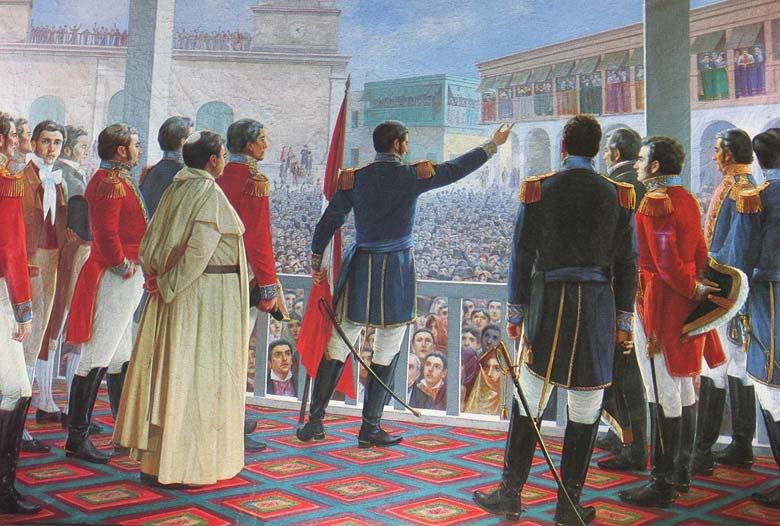 This would further disrupt the already disrupted relations between Inca and English, hurt heavily by the "letter of Kingly demands" circled by Emperor Talchota earlier, as fulfilling such demands would now prove impossible, no hazpac being willing to fulfill them of its own accord, the central government being unmoved enough to force the issue with its localities, and the Emperor (of the third Talcha reign) being quite inimical towards the English, perhaps solely due to his family's strong dislike of the English-friendly Manco.
Last edited by Inca (DoE); February 21, 2011, 10:37.
This would further disrupt the already disrupted relations between Inca and English, hurt heavily by the "letter of Kingly demands" circled by Emperor Talchota earlier, as fulfilling such demands would now prove impossible, no hazpac being willing to fulfill them of its own accord, the central government being unmoved enough to force the issue with its localities, and the Emperor (of the third Talcha reign) being quite inimical towards the English, perhaps solely due to his family's strong dislike of the English-friendly Manco.
Last edited by Inca (DoE); February 21, 2011, 10:37.
Comment
-
The Assimilation of the Kassites
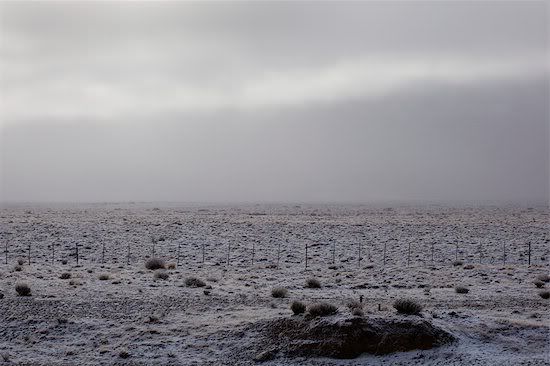 Arctic winds ripped through the plains, freezing and crushing the short shrubland grasses under their weight. Although the humid heated winds of the north have an oppression of their own, it is a sort of stifling silence of somnolence, a tropic torpidity, but nothing so sheer and slicing as southerlies. No, these winds fray the frigid shells of men, violently gutted already by the glacial gales. They are an assault of thermal death, each gust a volley of the icy artillery of an inimical nature. It is an assault that works from the inside primarily while it slowly chips and chars the outside with its frozen fire. It sucks out the souls of men, leaving them thin, shivering masses of quivering muscle and racked bones, whose only desires, hopes, thoughts, and feelings are of one kind: the demand for warmth and substance. They no longer know either, themselves now insubstantive: wraiths wandering worn and wretched wastelands of some damned limbo of the southern plains.
Arctic winds ripped through the plains, freezing and crushing the short shrubland grasses under their weight. Although the humid heated winds of the north have an oppression of their own, it is a sort of stifling silence of somnolence, a tropic torpidity, but nothing so sheer and slicing as southerlies. No, these winds fray the frigid shells of men, violently gutted already by the glacial gales. They are an assault of thermal death, each gust a volley of the icy artillery of an inimical nature. It is an assault that works from the inside primarily while it slowly chips and chars the outside with its frozen fire. It sucks out the souls of men, leaving them thin, shivering masses of quivering muscle and racked bones, whose only desires, hopes, thoughts, and feelings are of one kind: the demand for warmth and substance. They no longer know either, themselves now insubstantive: wraiths wandering worn and wretched wastelands of some damned limbo of the southern plains.
Inside this demented land, General Chutzco stood, overlooking an expanse of white, bordered by distant deep blue. Above him there was no sun, nor moon, only the gray weave of cloud. Beneath this cold blanket lay a world best left to its slow death and frost. But, on this day, it must be roused from its slumber. How it repays this incursion with drowsy rage: annoyed enough to attack with its winds and dry rain, but too tired to mercifully give the men a finishing blow. It keeps them, him, here in perpetual torture.
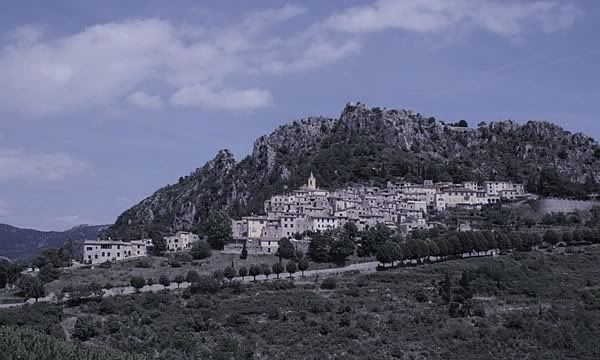 Chutzco had more than the sole desire of his men, and for this he was general. His second desire, other than warmth, was the conquest of the Kassites, a lost coastal people who the Emperor, in his warm, comfortable palace 1,000 patchas away had decided should be found again, brought into the Inca fold. The Emperor, of course, wouldn't dare visit this stretch of blurred gray, wouldn't bother to personally make his presence known to the 5,000 inhabitants of this prehistoric settlement. No, he would send the general instead, and his men as well.
Chutzco had more than the sole desire of his men, and for this he was general. His second desire, other than warmth, was the conquest of the Kassites, a lost coastal people who the Emperor, in his warm, comfortable palace 1,000 patchas away had decided should be found again, brought into the Inca fold. The Emperor, of course, wouldn't dare visit this stretch of blurred gray, wouldn't bother to personally make his presence known to the 5,000 inhabitants of this prehistoric settlement. No, he would send the general instead, and his men as well.
Too long the general had stayed here, in the forests of the Hazccoyna hills. He had heard the history, how thousands of years ago other Inca wanderers, lost from the Empire for generations, had wandered into this place to seek shelter from the beasts of the Caczcoynan plains to the east. Up here, in these hills, near some small lake, they had made a home. How horrid are these low hills, how unbearable must have been the higher ones they lived in, oh Essence! No, the general was not a man of superstitions, that was their Essence. For him, there was no God, no Essence, nothing but a plane of reality full of suffering, ignorance, and hatred, some interminable shroud with a few holes punched through by less stupid men to show that indeed, somewhere, there was a source of light.
And for this land, for these lost people, the general and his men would be a punch, and would in very short order welcome them into a much brighter, more advanced world, punched in, pulled out through the coming hole.
So long those ancient Inca stayed here, ancestors to the troublesome Tupancha above. Ancestors likely to these native men and women as well. But too long had the general been here. So many years, almost a decade now, waiting for reinforcements that tracked back and forth across those ancient, empty plains, following contradicting signals from the general and Capaco: go home to Caczcoyna, go south to the general. But now they had arrived, chilled to the bone, ready to depart as soon as possible. This was a good thing. Morale may be low, but at least the air would incite them to kill as savagely as they could, as quickly as they could. No need to wait weeks or months for conditions to improve, they had all the motivation in the world for today.
"....at first, they did not know what to make of us. Perhaps we shone as gods down to them. Our brilliant, iron armor, our mechanical bows, all forged by some unbelievable magic. They knew nothing of our world, our technologies.
"The first we knew of them was through distant settlers, out in that plane now behind us. With that last expansion from Cacz, word had slowly spread back that the new settlers were not alone. Hunters and nomads from the north were sporadically straying into their homesteads. They were not an aggressive people. Their nomads left our people alone, their hunters never attacked us. They were few then, just a faint glimpse at what lay behind them. They were unlike other hunters and nomads we had met. These men had the wares and signs of more civilized life, non-Inca life. Their bows were too well crafted, their clothes too well stitched, their jewelry clearly refined from simple ornaments, shells, amber, copper. The level of refinement, of all their belongings, was discordant with our observations of the capabilities of true nomads and simple tribes. Yes, somewhere in the wild expanses of the wild south some oasis of settlement had emerged.
"And how apt for it to emerge in such a food-rich place, where many people could be concentrated into larger settlements than family villages and the like that persist throughout our wild central jungles. But regardless of their relative civility and advancement compared to those jungle savages, we could not just allow them to grow on our borders. They must be assimilated.
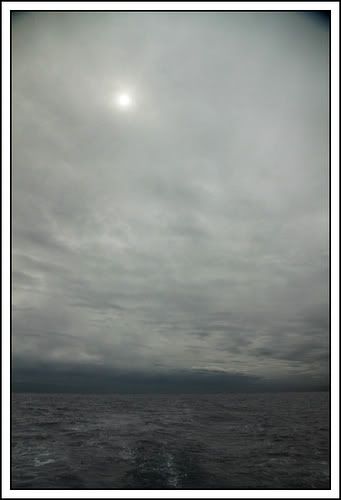 "So we followed them inwards, up and down ravines and draws and ridges. We followed those ancient Tupaca tracks long lost to the shrubgrasses and pines and forests. We moved closer, met more of them, generally in peace. They dared not attack us, and we had no need for unnecessary blood. They brought us food, shared their hunts, their berries and vegetables. They have continued to feed us now for so many years, unaware of our intents. Here we have holed up in some rocky outcrop of the southern Chupat, where the mountains finally break into cracked hills and deep valleys, where the sea dies down and all is left is salt in the air, a desolate and dry land.
"So we followed them inwards, up and down ravines and draws and ridges. We followed those ancient Tupaca tracks long lost to the shrubgrasses and pines and forests. We moved closer, met more of them, generally in peace. They dared not attack us, and we had no need for unnecessary blood. They brought us food, shared their hunts, their berries and vegetables. They have continued to feed us now for so many years, unaware of our intents. Here we have holed up in some rocky outcrop of the southern Chupat, where the mountains finally break into cracked hills and deep valleys, where the sea dies down and all is left is salt in the air, a desolate and dry land.
"We have become men of rock, basalt and lime. Our bodies absorb the dust and shattered shards of the land. Our souls fed on thin, frayed grasses; thorns and what small, hard berries survive such a place. Our opulence the flesh of wild deer and crabmeat brought in by the traders, their small economy now set up to provide for their new masters.
"Our minds have emptied, become the expanse of overcast skies that fill our heads and eyes every day, oft broken by some breath of clarity, in the winter months, when that sheath is removed and we bear our souls directly to the unobscured emptiness that lies behind that gray gradated, layered facade. No blanket of vapor or fog in those months, in our icy death we meet truth, born unto the heavens at night, the blinding hole in our dark world in the day.
"Today, we end this state; we progress, at last, into a dynamic state, where such nothingness of self and spirit falls decrepit into its grave and sees the child emerge from behind, unencumbered by such frailty. We pick up our bows, our magic, our axes and our armor, set out against these simple men, our own simpleness now adopted, and set fire to it. Bows against bows, only some thousands of years in between, let time tell the victor.
"That movement, from our fort, in such numbers, more than exist below almost, columns and rows, regimented, synchronized, a million feet pounding the thin powdering of snow and frost, the frigid mud and grass. The roar of a jaguar heard in a tiny room, locked together in that empty box with his prey. Deafening, reverberating, through the walls of clay and of muscle, shaking all to the core. What sense to make of such sound, such unknown and unbelievable cacophany? They stood, paralyzed by this new way of the world, of these alien men.
"And we marched, and we slaughtered, and we commanded their allegiance on those red-stained fields of Hazccoyna. We bled it into the draws and down the cliffs, we flooded it into the seas, made purple by our iron. Fight, some did; flee, others; many stood amazed at this new day.
"And once that fighting, that fatal business had ended, we went about constructing a government, representative of the people, the ones that mattered at least: Emperor and Sapa Piytu and the rest. And we sent unused reserves home, back to Cacz, back again on an uneding march through vacant wilderness to their warm, humid home, to grow fat on crab, fish, deer, corn, and all other great foods of Incaco. Back to quell the riots, put the Tupancha to obey, put out those hot coals, set right the other descendants of Tupac, distant brothers in Inca hands again. Here, we stay, our new home, our bright future, along with our new brothers, new wives, widows by our blade, to build a community.
"Yes, a community of civilization finally has arrived. The Kassites are now Inca again."
Comment
-
The Triangle Trade Thrives
While the government had been restructured and the relationship between the King and the nobility was forever altered, King Henry III continued the expansionary policies of his uncle, King Richard I. Indeed the lords encouraged such expansion. The eldest son inherited the lands and title of his father, but that left many younger brothers left out in the cold. The New World afforded them great chances at opportunity. For an intrepid few willing to brave the malaria soaked jungles of the colonies a fortune could be made. South America was rich in cash crops that could only grow in the warm year-round growing season in South America. Great farms and plantations of corn, exotic spices and tropical fruit dotted the northern coast of English South America. These crops were all the rage back in England and made the growers very wealthy. The discovery of precious gems in the colonies further spurred trade and development.
the cold. The New World afforded them great chances at opportunity. For an intrepid few willing to brave the malaria soaked jungles of the colonies a fortune could be made. South America was rich in cash crops that could only grow in the warm year-round growing season in South America. Great farms and plantations of corn, exotic spices and tropical fruit dotted the northern coast of English South America. These crops were all the rage back in England and made the growers very wealthy. The discovery of precious gems in the colonies further spurred trade and development.
However, the plantations were labour intensive. There were many yeoman farmers, indentured servants and criminals from back in England able to take on the challenge, but simply not enough to meet the labour needs of the colonies. Thanks to the Magna Carta slavery was outlawed back home, but those laws did not apply to the colonies - and certainly not to the savage races of the west. The South American natives were captured and enslaved, however the native population near the colonies were too sparse and too lazy to properly rely on. Under the direction of Viceroy Cornwallis, the natives of English North America were shipped south to work the land. The growing upper class of Mixed Race Americans favoured their English ancestry and began to resent their primitive, native roots. They had no moral qualms about selling their pure native Americans into slavery in the south. Indeed, they profited greatly from it.
English North America lacked the forges and manufacturing capacity of the British Isles and as the Anglicization of them continued, demand for English-made clothing, books and other goods grew and grew. England, long a nation of traders and merchants, thrived from this demand. The triangle trade between Europe, South America and North America made many fabulously wealthy.
 It also started to reshape society. While some crops, such as spices and fruit could only be efficiently produced in the colonies, others could be transplanted back to England. Three American crops became quite popular back home: corn, the tomato and the potato. The most important new food was the potato, which had three major advantages over other foods for the consumer: its lower rate of spoilage, its bulk (which easily satisfied hunger), and its cheapness. Potatoes yielded from two to four times more calories per acre than grain did, and eventually came to dominate the food supply in England. Indeed, a single acre of potatoes and the milk of a single cow was enough to feed a whole Irish family a monotonous but nutritionally adequate diet for a healthy, vigorous (and desperately poor) rural population. Often even poor families grew enough extra potatoes to feed a pig that they could sell for cash.
It also started to reshape society. While some crops, such as spices and fruit could only be efficiently produced in the colonies, others could be transplanted back to England. Three American crops became quite popular back home: corn, the tomato and the potato. The most important new food was the potato, which had three major advantages over other foods for the consumer: its lower rate of spoilage, its bulk (which easily satisfied hunger), and its cheapness. Potatoes yielded from two to four times more calories per acre than grain did, and eventually came to dominate the food supply in England. Indeed, a single acre of potatoes and the milk of a single cow was enough to feed a whole Irish family a monotonous but nutritionally adequate diet for a healthy, vigorous (and desperately poor) rural population. Often even poor families grew enough extra potatoes to feed a pig that they could sell for cash.
Comment
-
THE FOLLOWING IS A MESSAGE FROM THE INTERIM GOVERNMENT OF THE FORMER OTTOMAN EMPIRE
To all esteemed Rulers and Nations
As you are aware, the previous ruler of the Ottoman Empire lost his mind and according to rumor leapt into the sea. Others have claimed to have seen him stealing away on a vessel in the dark of night for what shores no one knows. Others still claimed that he fled at the approach of the French armies, fearful that his doom was upon him. Whatever may have happened to our former leader, let it be known to all that an interim stewardship was hastily assembled, and we have assumed the considerable burden of locating all the keys to the locked chests and closets of the royal palace.
All nations are hereby put on notice that all former agreements are suspended as we attempt to asses what damage the former leader may have done to our nation when he left. The royal treasury was empty, and I can only assume was looted during the chaos following the leaders' absence. Once we have put a new government in place and determined the nature of our situation, we will be better able to determine what agreements should be continued, and which should be abandoned. Again, there are voluminous ancient records documents and treaties to be examined by our officers, and this process will take time. You kind patience and assistance will be appreciated during this difficult time.
We are now attempting to calm the fears of the people, as there has been some civil unrest as a result of the former ruler's abrupt and unexplained departure. Rest assured, that we will piece together our nations' responsibilities, obligations and commitments on the world stage with all due haste. There will undoubtedly be some adjustments to be made in our structure, and we ask our neighbors and friends to be patient as we struggle to fix the chaos that our leaders' departure has caused. In the meantime, we express our gratitude to all nations that have reached out to us, and we encourage all others to do so as well.
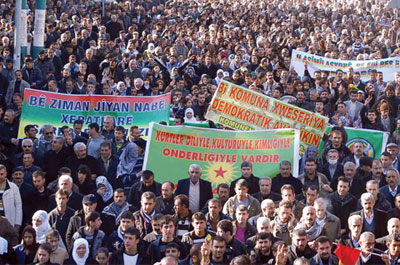
Shalom, Namaste, Peace and Saalam, on behalf of the interim Ottoman GovenmentMexico Emerges as a New Player on the International Stage - Mexico City Times
Comment
-
A Revelation from God in the New World
The New World attracted a great variety of treasure seekers, religious pilgrims, farmers, entrepreneurs, tradesmen, craftsmen, and adventurers of every stripe. Some of the most prosperous colonies in South America were Plymouth colony, founded by devout Muslims from York seeking religious freedom, and Williamsburg, founded by Christians who left England's African colonies after they were turned over to the Ottomans. Life was rough on the frontier. Settlers had to contend with jungle cats, all manner of diseases and indian raids in addition to the daily struggle to produce food and income. One farmer who grew up on the outskirts of Williamsburg was destined for a greater life than eeking out a meager existence from the soil. Indeed he would extract something far greater and more valuable from the soil than mere crops.
Joseph Confucius Smith, Jr. was born into a poor family near Williamsburg. His mother's family had lived in Carthage for many generations before joining the exodus to Williamsburg. Unlike the other first settlers of the town who emerged as the region's elite landholders, his mother's family had fallen victim to many bad investments and she was eventually married off to a former indentured servant, Joseph Smith. Smith tried many different jobs before earning enough to buy a plot of land and father eleven children.
 Their fifth child, Joseph Smith, Jr. was quiet, but thoughtful. It was then that he began to experience visions. The most profound of these involved the angel Moroni who appeared to him at night and directed the young Joseph Smith Jr. to a nearby hillside. There the angel instructed him to dig. Out of the ground Smith pulled a set of golden plates enclosed in a stone box. The plates were six inches wide and eight inches long and not quite so thick as common tin. They were filled with engravings, in Ancient Egyptian characters and bound together in a volume, as the leaves of a book with three rings running through the whole. The volume was something near six inches in thickness, a part of which was sealed. The characters on the unsealed part were small, and beautifully engraved. The whole book exhibited many marks of antiquity in its construction and much skill in the art of engraving.
Their fifth child, Joseph Smith, Jr. was quiet, but thoughtful. It was then that he began to experience visions. The most profound of these involved the angel Moroni who appeared to him at night and directed the young Joseph Smith Jr. to a nearby hillside. There the angel instructed him to dig. Out of the ground Smith pulled a set of golden plates enclosed in a stone box. The plates were six inches wide and eight inches long and not quite so thick as common tin. They were filled with engravings, in Ancient Egyptian characters and bound together in a volume, as the leaves of a book with three rings running through the whole. The volume was something near six inches in thickness, a part of which was sealed. The characters on the unsealed part were small, and beautifully engraved. The whole book exhibited many marks of antiquity in its construction and much skill in the art of engraving.
The angel Moroni commanded "that the plates must be translated, printed and sent before the world" using a seer stone, Smith set about to do just that. Placing the golden plates into his hat, he used the stone to translate and dictate the words on the plates, writing a great manuscript. The manuscript detailed the story of Lehi, an ancient Israelite who fled Jerusalem before the Ottomans destroyed the city. Led by angels, Lehi and some friends and family who escaped the city's destruction, built a great ship and sailed west across the ocean before finally settling in South America. The plates tell of the flourishing of a Hebrew civilization in the Americas and that Jesus Christ appeared also to these American Jews in addition to the ones in Israel.
This revelation was shocking to Joseph Smith, Jr. and his family. The plates, written by an ancient historian, Mormon, laid out the history of these lost tribes of Israel but also laid out the ideas and principles of a new faith. Related to Judaism and Christianity this new religion, the religion of Latter Day Saints would soon sweep the globe as one of the world's most dynamic and widespread systems of belief.

Comment
Comment